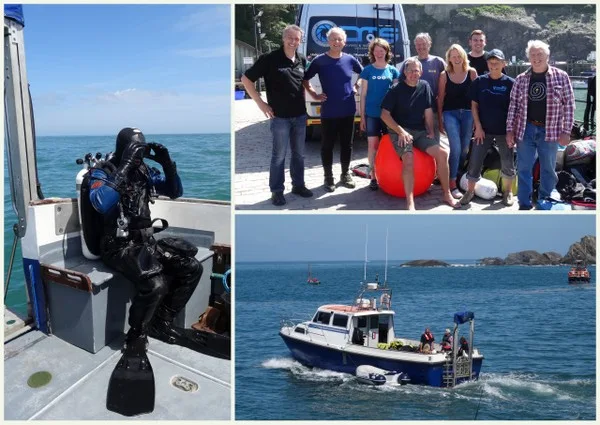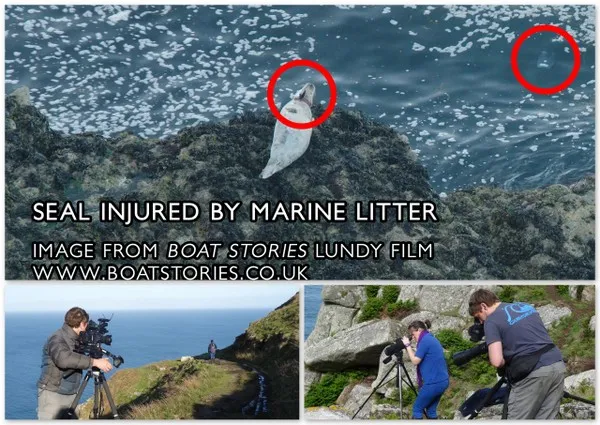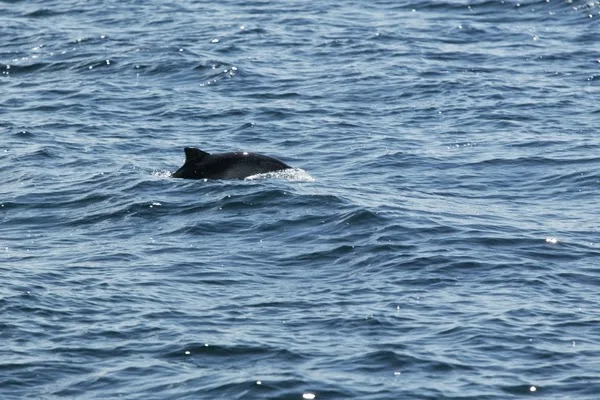If you ever thought that scuba diving in North Devon would be dull then think again. The waters off the coast of Ilfracombe are littered with wrecks and populated by fascinating underwater life. A new short film - Every Dive is an Adventure - introduces members of Ilfracombe and North Devon Sub Aqua Club (ILFSAC) who dive alongside volunteers from Seasearch, surveying marine life as they explore this fascinating underwater landscape.
Film producer Jo Stewart-Smith talks about the inspiration behind this latest addition to the Boat Stories series "I had two people equally passionate about their favourite subject and was torn between whether to focus on exploring undiscovered wrecks or recording marine life in our short film. Luckily, because wrecks which lie on the sea floor act like rocky reefs and become magnets for marine life we are able to reveal a little bit of the excitement of both."
Jo says that the title for this film is a direct quote from ILFSAC Chairman Shaun Galliver who says in the film "Diving off the coast of North Devon is a challenge and we never know what we are going to find - whether we're looking for a new wreck or new marine life - every dive is an adventure."
Galliver, a self-confessed 'wreck head' told Jo about the many wrecks off the North Devon Coast "Around 1910 Cardiff was one of the world's busiest ports and in one year 13 million tonnes of coal or 300 ships a day travelled past Ilfracombe. Many of those either hit rocks or hit each other so we still have a lot of undiscovered wrecks here, we found four last year and even last week we dived two new ones."
He commented that to dive a new wreck, one that no one has touched or seen for 150 years, is amazing and the club can offer that opportunity to its members. ILFSAC has been exploring new wrecks since it was founded in 1960 so its club house is a bit like an Aladdin's cave of treasures from the deep. One of these holds pride of place at the bar; a ship's bell which came from the steamship The George Lamb which came a cropper on the rocks in the late 1800s.
Jo was entranced by the brilliant colours in ILFSAC diver, Maggs Ashton's photographs. Maggs is passionate about photographing this colourful underwater world 'people always say you must have photographed that in the Red Sea, I have trouble convincing people that they are found here in North Devon."
In the film Sally Sharrock tells us about Seasearch, a project which encourages divers to map out the sea bed and survey marine life "We work on the assumption that if we don't know what's there we can't protect it and the only people who see what is down under water are the divers. We train them in basic marine biology so that they know what they are looking for."
Talking about the variety and colourful nature of the marine life Sally says "It's like an old fashioned sweet shop where you have all the jars of different colours on the walls." On this dive she discovers a curious looking Tompot blenny and exclaims "they're always good fun, 'cause they've got a big smiley face!"
Every Dive is an Adventure will be shown on the big screen along with the 9 other Boat Stories Films at a free event on Friday 16 October 2015 at Bideford Cinema, Kingsley School, Bideford - details at www.bidefordcinema.org.uk.
Unsurprisingly, seats are selling fast so if you can't get to the screening you can watch the films online at www.boatstories.co.uk or look out for the DVDs which will be on sale in selected museums and information centres soon.
Underwater cameraman, Rich Stevenson, just surfaced and back in harbour, ILFSAC, Seasearch members and camera crew after a
successful mission, Neptune setting off on an adventure. Photos copyright Jo Stewart-Smith (All Rights Reserved)
- North Devon Moving Image CIC
- Ilfracombe & North Devon’s Sub Aqua Club (official full title of the club btw) they’re often called ILFSAC or Ilfracombe Dive Club
- Seasearch



.jpg)

.jpg)